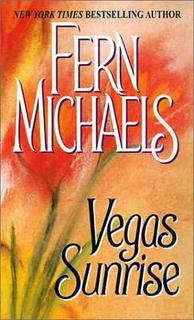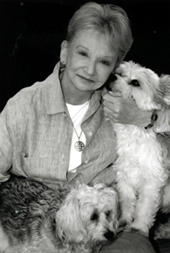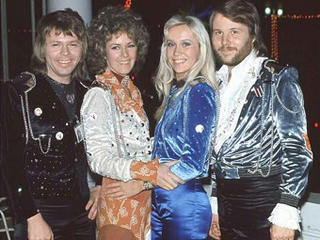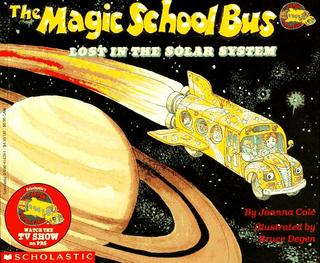TTAB Citable Decision Says Author's Name May be a Trademark, but Refusal of "FERN MICHAELS" is Affirmed
Fern Michaels fans were undoubtedly crestfallen as the TTAB, in its ninth citable decision of 2005, affirmed a refusal to register the pseudonym FERN MICHAELS for a "series of fictional books." Although the Board, in this case of first impression, ruled that an author's name or pseudonym is registrable for a series of books under appropriate circumstances, it agreed with the PTO that, based on the record evidence, FERN MICHAELS does not function as a trademark for Applicant's goods. Had Applicant timely submitted certain proofs, however, the outcome might have been different. In re First Draft, Inc., 76 USPQ2d 1183 (TTAB 2005).

FERN MICHAELS is a pseudonym of Mary Ruth Kuczkir, Applicant's "principal." Under that pseudonym, Ms. Kuczkir has written 67 romance novels, has sold over 60 million copies worldwide, and in 1995 was inducted into the New Jersey Literary Hall of Fame. The specimen book jackets display her name in the usual places, and include a list of other FERN MICHAELS titles.
The Board first tackled a rather strange side issue that the Examining Attorney "had not specifically argued:" whether a pseudonym or a fictitious name can be a trademark. [Logic asks, "why not?"]. Two pre-Lanham Act cases held that a fictitious name in signature form was not a trademark, but post-Lanham Act cases make it clear that there is no distinction between between actual names and fictitious names -- under proper conditions, they may be trademarks or service marks.
Next, the Board considered a procedural question: the significance of third-party registration files. Applicant First Draft submitted TARR printouts and file wrappers for seven registrations for various author's names. The Examining Attorney argued that these items are "without evidentiary value and not binding on the Office." The Board agreed that decisions in other applications are not binding on the Board, but it did consider the files. However, it disagreed with Applicant that the third-party files established "an Office practice contrary to the refusal advanced in this case."
"The fact that a few third-party registrations have been allowed over a long period of time hardly establishes current Office policy. There may very well be as many or more abandoned applications wherein registration was refused on similar records. The Board's responsibility is to focus on the record at hand. We do not think it a useful exercise for applicants and examining attorneys to spend inordinate resources combing through large numbers of registration or abandoned application files when application of the law to the record at hand should suffice."
In any event the Board noted, "most of the limited number of registrations submitted by applicant are distinguishable from the present case."

The Board then turned to the first of two substantive questions before it: "whether an author's name is, as a general rule, to be treated as unregistrable matter and if so, why." It noted that the copyright law provides a rationale for such a general rule: registration of the author's name as a trademark would enable the author, upon expiration of the copyright in the work, to perpetuate his or her monopoly, since without the name the copyrighted material would have little value. In Herbko Int'l Inc. v. Kappa Books, Inc., 64 USPQ2d 1375, 1378 (Fed. Cir. 2002), this copyright rationale provided additional support for the policy against finding proprietary rights in titles of single books. The Board, however, found "no clear precedent" applying the copyright rationale to the issue of registration of an author's name for a series of written works.
The Board also noted another rationale "arguably supporting" a rule that an author's name should not generally be registrable, one rooted in certain cases discussed in Professor McCarthy's treatise: a personal name is essentially descriptive. However, because neither the PTO nor the applicant discussed the descriptiveness issue, the Board declined to consider it as a basis for the refusal.

In answering the first question, the Board relied on In re Polar Music Int'l AB, 221 USPQ 315 (Fed. Cir. 1983), wherein the CAFC held the name ABBA to be registrable as a trademark for recorded musical performances by that group. The appellate court cautioned, however, that
"just showing the name of the recording group on a record will not by itself enable that name to be registered as a trademark. Where, however, the owner of the mark controls the quality of the goods and where the name has been used on different records and has therefore come to represent an assurance of quality to the public, the name may be registered as a trademark since it functions as one." Id. at 318.
The Board also looked to its own precedent in In re Scholastic Inc., 23 USPQ2d 1774 (TTAB 1992), which relied on Polar Music. In Scholastic, the Board ruled that repeated use of THE MAGIC SCHOOL BUS in various titles of a series of books, together with evidence of promotion and recognition, "meant" that the designation had become a trademark.

The Board concluded that there are two routes to proving that an author's name for a series of books functions as a mark:
"as a general rule, an author's name is not registrable for a single work, but may be registrable for a series of written works, when there is sufficient indicia that the name serves as more than as a designation of the writer, that is, that it also functions as a mark. This may be shown by providing evidence of the sort presented in Polar Music [quality control]; or it may be shown, akin to the showing in Scholastic, by submitting evidence of promotion and recognition...."
The second substantive question faced by the Board was whether the evidence was sufficient to establish that FERN MICHAELS functions as a mark. There was no doubt that FERN MICHAELS has been used as the author's name for a series of books, and so the question became whether Applicant could meet either the Polar Music or the Scholastic test.
As to quality control, the lack of evidence here was in "stark contrast" to the Polar Music case. Although the Board "would not have been surprised" if First Draft had shown that it "was formed to be the 'corporate entity' of Ms. Kuczkir and to negotiate contracts, licensing, and other issues related to FERN MICHAELS publications, just as Polar Music International AB was the corporate entity of the performing group ABBA in the Polar Music case." However, Applicant here provided no such evidence.
As to the Scholastic analysis, here the evidence of promotion is "indirect and rather scant." Unlike in Scholastic, Applicant First Draft did not submit promotional materials or third-party reviews, nor did it provide information as to sales and advertising, nor declarations from publishers, retailers, or readers.
Thus Applicant's proof failed under both the Polar Music test and the Scholastic test, and therefore the Board affirmed the refusal to register.
TTABlog Query: Suppose Applicant were to seek review of this decision by way of civil action in a federal district court under 15 U.S.C. Sec. 1071(b). Now that Applicant knows what has to be proven, why not submit the required evidence to the district court in a "de novo" review of the Board's decision?
Text Copyright John L. Welch 2005.




0 Comments:
Post a Comment
<< Home